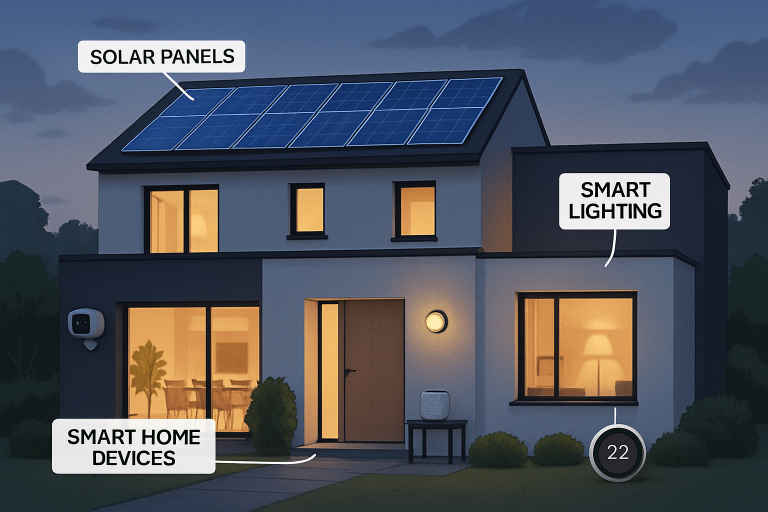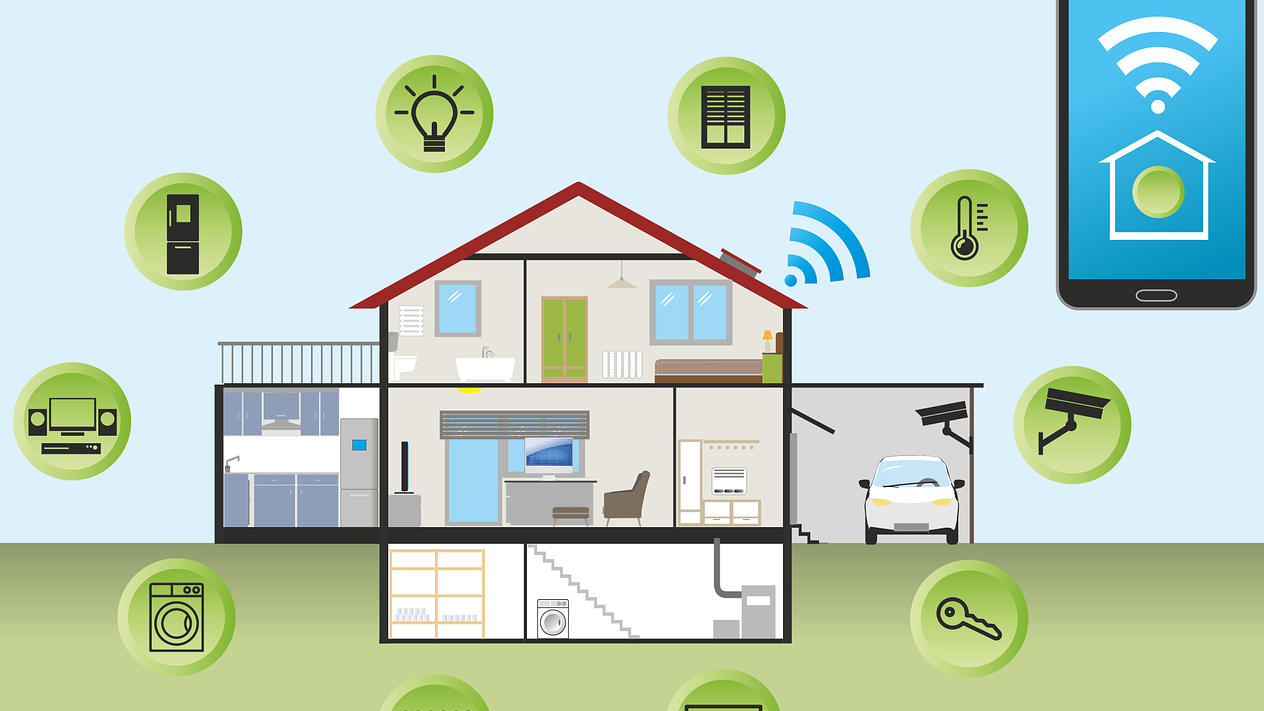Table of Contents
- Introduction
- Enhanced Energy Efficiency
- Cost Savings
- Improved Comfort and Convenience
- Environmental Impact
- Increased Property Value
- Real-Time Monitoring and Control
- Integration with Renewable Energy
- Future-Proofing Homes
Introduction
As the demand for sustainable living grows, homeowners increasingly seek innovative ways to reduce their environmental footprint and cut energy costs. Incorporating innovative building technologies is one of the most effective strategies for achieving these goals. These advanced systems enhance energy efficiency and provide greater convenience and long-term value for homeowners. Discover how building an energy-efficient home with innovative technologies can transform your living space, offering you and the environment many benefits.
Innovative building solutions are revolutionizing residential spaces by offering precise control over energy usage, improving comfort, and enabling real-time monitoring. From automated lighting to advanced HVAC systems, these technologies adapt to your needs and optimize consumption, making them integral to modern home design. By leveraging these innovations, homeowners can enjoy significant savings, healthier living environments, and a future-ready lifestyle.
Enhanced Energy Efficiency
Innovative building technology’s heart is its ability to significantly lower household energy consumption. Advanced systems such as programmable thermostats, occupancy sensors, and intelligent lighting can automatically adjust settings based on real-time conditions. These adjustments prevent unnecessary energy use, which can reduce a home’s consumption by as much as 30%. This optimization is especially valuable during peak energy use periods, with the highest utility rates.
According to the U.S. Department of Energy, simple smart home upgrades like energy-efficient lighting and smart thermostats help homeowners be more mindful of their consumption, leading to better energy management on a daily basis.
Cost Savings
Lowering energy usage naturally translates to reduced monthly expenses, providing direct cost savings for homeowners. Smart thermostats, for example, learn your household’s schedule and automatically adjust the temperature to save energy when no one is home. Similarly, automated lighting systems turn off lights in unoccupied rooms, helping to eliminate wasteful usage and cut utility bills. Over time, these savings can be significant, recouping the initial investment in innovative technology and continuing to pay dividends well into the future.
Improved Comfort and Convenience
Smart home technologies increase comfort by creating personalized living environments. Automated climate control systems maintain consistent, comfortable indoor temperatures tailored to each room and occupant preference. In addition, these systems can adjust humidity, ventilation, and air purification, supporting healthier indoor air quality. With voice commands or mobile apps, homeowners have unprecedented convenience, whether adjusting settings remotely or creating routines to suit their daily habits.

Environmental Impact
Innovative building solutions help significantly reduce greenhouse gas emissions by minimizing unnecessary energy consumption. This energy-saving approach supports broader environmental goals, aligning with global climate action initiatives. As more households adopt these technologies, cumulative reductions in fossil fuel use and carbon emissions can make a substantial difference. According to the U.S. Environmental Protection Agency, energy-efficient upgrades aren’t just beneficial for homeowners—they play a critical role in protecting the environment for future generations.
Increased Property Value
Homes equipped with advanced, innovative technologies often command higher prices in the real estate market. Prospective buyers are increasingly drawn to properties offering built-in energy efficiency, convenience, and lower operating costs. Energy-efficient homes are frequently listed as premium properties and may sell faster than traditional homes without these enhancements. As demand rises for sustainable housing, investment in innovative building technologies becomes a key differentiator for sellers.
Real-Time Monitoring and Control
One of the most potent advantages of intelligent building systems is the ability to monitor and control energy consumption in real time. Smart meters and monitoring platforms give homeowners instant access to electricity, water, and gas data. With actionable insights, they can spot trends, identify energy hogs, and intervene early if a system malfunctions, reducing the likelihood of costly repairs. These tools also support ongoing maintenance strategies, keeping homes running efficiently year-round.
Integration with Renewable Energy
Modern smart homes are often designed to harness renewable energy sources like solar panels and wind turbines. Intelligent energy management systems can maximize the use of these resources, storing excess solar power in batteries or feeding it back into the grid. This reduces dependence on fossil fuels and offers homeowners greater energy independence, contributing to a cleaner, more resilient energy system overall.
Future-Proofing Homes
Investing in innovative building technologies ensures that homes remain adaptable as standards, technology, and energy regulations continue to evolve. As more innovations emerge, homes equipped with interoperable and upgradable technology can easily incorporate new features and maintain compliance with changing requirements. This adaptability protects the homeowner’s investment and ensures continued enjoyment of emerging tech advancements.
Integrating innovative building technologies brings many benefits, making homes more energy-efficient, comfortable, and sustainable. As adoption grows, these systems will play an ever-increasing role in shaping the way we live, helping homeowners reduce costs, support environmental goals, and create truly future-ready spaces.

